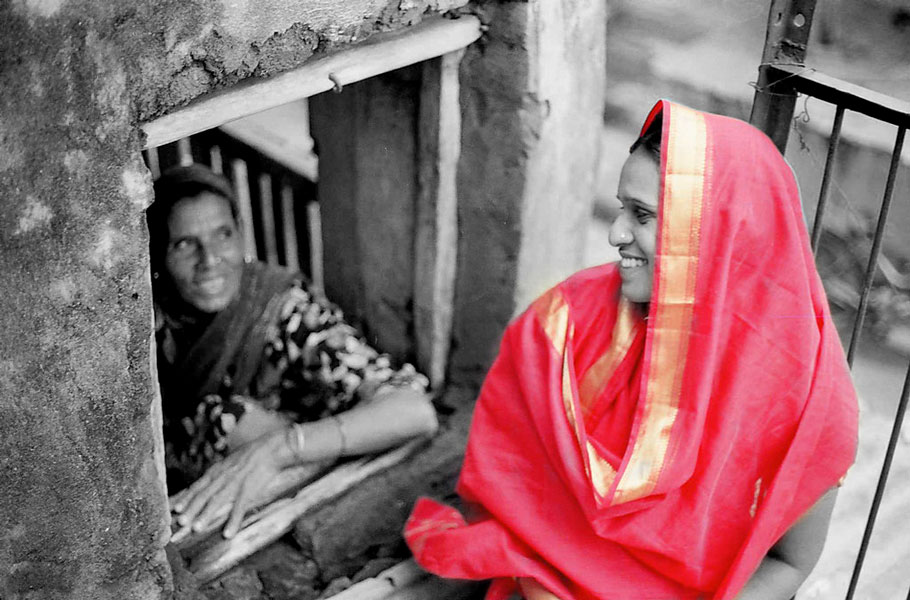
I am a model. Have you seen my picture on the website?” asks Deepa Kevat, a weaver at Jhoole — a handloom weaving unit in Maheshwar village, Madhya Pradesh. Her photograph on the website (www.jhoole.org) shows Deepa in a bright yellow sari bordered with golden zari, swinging happily on a rope jhula tied to a tree branch. “Hannah didi made us weave our own saris,” she says and that was “the first time we understood that weaving was not just menial labour, but an art.” The beautiful portraits of the women weavers on the website chronicles a heart-warming story.
Hannah Warren, a student at the London College of Fashion, was sponsored by RC Loves Park, Illinois, D 6420, in 2005–06 to visit India as a Rotary Foundation Ambassadorial Scholar. She remembers giving a child labourer money to buy a dress and wishing she could do more for the little girl, before she went back to the US. In 2008, as part of a project funded by the Royal Society for Asian Affairs, Hannah returned to India to photograph the sari weavers in Maheshwar. She wanted to shoot portraits of the women weavers wearing hand-woven saris. Instead of simply buying new saris for these women, she gave them the money to buy raw material to weave their own saris. In their portraits, she says, the weavers “looked so beautiful and proud” wearing the first saris they had designed for themselves.
The weavers looked so beautiful and proud wearing the first saris they had designed for themselves.
The experience motivated her and whenever she was invited to speak at Rotary club meetings in the US, Hannah would share the story and smiles of the Indian weavers. In 2010, RC Loves Park and four other clubs from that District, RC Khargone, D 3040, and TRF provided $12,500 to set up a handloom unit at Maheshwar. The Matching Grant provided looms, other equipment, cloth and thread and took care of the office expenses, publicity, and website designing. It also covered the cost of training the women in weaving and sewing. The project received funds from the Indore School of Social Work too. RC Khargone further donated $2,000 and provided land for another training facility in Manpur.
The name Jhoole (meaning swings in Hindi) is inspired by the culture of tying swings onto huge trees to mark the onset of monsoon that ends the unbearable heat in Maheshwar. “Jhoole is a celebration of change and reason for relief for poor women as it provides them training, materials and an international market for hand-woven goods, so they can earn a decent living,” says Vikram Chouhan, President of RC Maheshwar.
Hannah has also created a direct market for the dresses, skirts and handbags made by the weavers by developing partnerships with designers and distributors, including Chicago-based Mata Traders. In India, Pratibha Syntex, a large garment factory in Preethampur, gives the unit stitching and weaving assignments. “They pay the women a per piece rate which works well for both the parties,” says Chouhan.
Jhoole gives 20 percent of its profits to Chetanya Sewa Sansthan, which aids elderly women and people with disabilities. Hannah estimates that more than 300 people have benefitted from both the organisations. RC Maheshwar has helped fund two Jhoole fashion shows so far.
The website is classy and portrays a desi touch. “There is no way I could be doing this work, if not for my Ambassadorial Scholarship. Rotary scholarships are not a one-time donation; they are an investment in goodwill,” she adds.
Pictures by Hannah Warren







